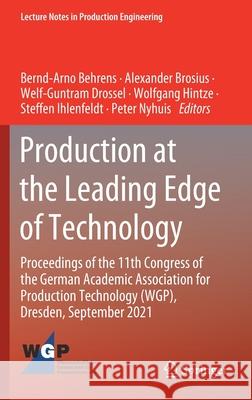Production at the Leading Edge of Technology: Proceedings of the 11th Congress of the German Academic Association for Production Technology (Wgp), Dre » książka
topmenu
Production at the Leading Edge of Technology: Proceedings of the 11th Congress of the German Academic Association for Production Technology (Wgp), Dre
ISBN-13: 9783030784232 / Angielski / Twarda / 2021 / 706 str.
Production at the Leading Edge of Technology: Proceedings of the 11th Congress of the German Academic Association for Production Technology (Wgp), Dre
ISBN-13: 9783030784232 / Angielski / Twarda / 2021 / 706 str.
cena 1204,83
(netto: 1147,46 VAT: 5%)
Najniższa cena z 30 dni: 1156,64
(netto: 1147,46 VAT: 5%)
Najniższa cena z 30 dni: 1156,64
Termin realizacji zamówienia:
ok. 22 dni roboczych.
ok. 22 dni roboczych.
Darmowa dostawa!
Kategorie:
Kategorie BISAC:
Wydawca:
Springer
Seria wydawnicza:
Język:
Angielski
ISBN-13:
9783030784232
Rok wydania:
2021
Wydanie:
2022
Numer serii:
000454158
Ilość stron:
706
Waga:
1.15 kg
Wymiary:
23.39 x 15.6 x 3.81
Oprawa:
Twarda
Wolumenów:
01
Dodatkowe informacje:
Wydanie ilustrowane











